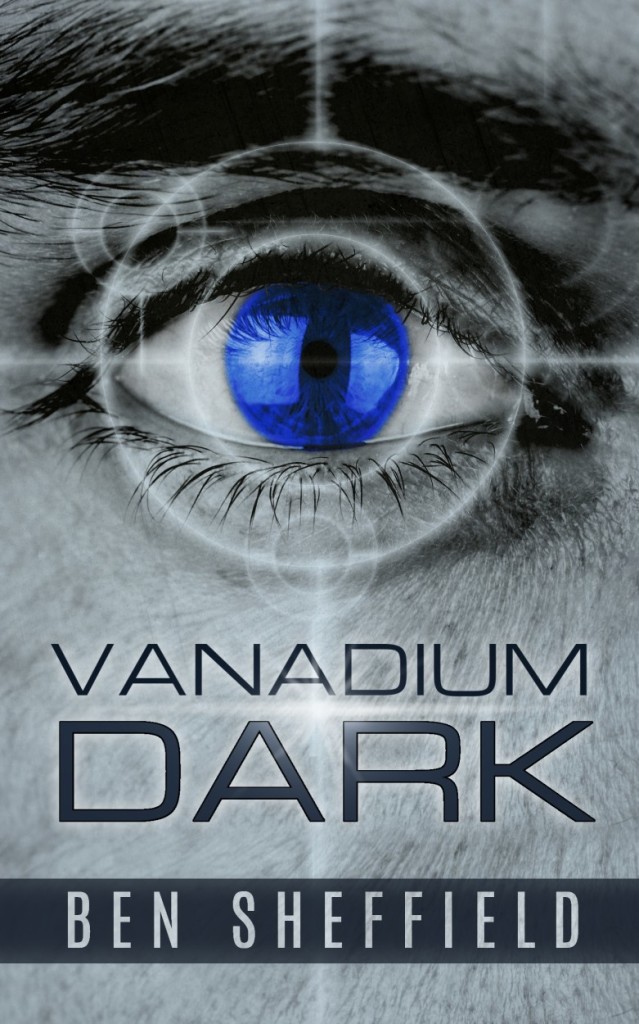 Here. Price currently nuked to 0.99 until the 24th.
Here. Price currently nuked to 0.99 until the 24th.
Review copies could potentially be available for even less. Contact me if you’re interested.
Executive Summary
A disaster befalls the United States. It must never be repeated. And so, tomorrow’s light shines in a thousand million million eyes.
Invisible nanobot-based cameras now blanket the cities and the skies, recording data and transmitting it to the Pentagon. Every single event: recorded. Every single incident: captured. It’s the ultimate law enforcement tool, a security feed that spans coast to coast.
But something is going wrong.
The nanocams are transmitting bizarre scenes to the Pentagon – events that have never happened, images that seem to be from another world.
Are the recordings being doctored?
Or is something far more sinister afoot?
A powerful and malevolent intelligence is emerging from the ruins of America, and it might be too late to stop it. An intelligence analyst called Viktor Kertesz now stands at the threshold of a new chapter of human history…and zero has just become one.
…In More Detail
Vanadium Dark is a strange, ultra-violent science fiction/thriller/horror novel set in the near future. I wrote it as a Venn diagram intersection of two ideas.
Idea Uno: global surveillance, and the reality that most oppression to date has been done with crude, ineffective, and limited methods.
Nero did not have chartered jets, and blacked-out vans to help him apprehend Christians. Torquemada did not have electric fires to burn his victims. Hitler did not have genome testing that could immediately determine, through a tiny drop of blood or sliver of skin, whether someone was a Jew.
They killed millions. And they were amateurs.
We’ve already seen the NES and SNES of oppression. The Oculus Rift of oppression could be coming soon. What form will it take?
18th century philosopher Jeremy Bentham predicted a new sort of prison, called a panopticon. A huge array of cells, arranged so that a single guard (via reflective lenses) can watch them all from a single control tower without the prisoners knowing that they’re being watched. The beauty of it is that even though huge numbers of prisoners are going unwatched (the guard only has two eyes in his head) they all must behave as if they’re being watched, as they cannot know whether the guard is looking into their cell at the moment.
The United States of Vanadium Dark is, essentially, a panopticon. The air is no longer just oxygen, helium, and nitrogen molecules – now it’s infested with nanoscopic cameras, connected to an immense security apparatus in the Pentagon. You are being watched. Your every move is now a performance. An anti-terrorism weapon, apparently. Sponsored by a relatively benign government.
Unfortunately, it works perfectly and the public loves it.
Idea Dos (MS-DOS?): computer intelligence.
Lots of people have written about the singularity – the point at which machine intelligence outstrips human intelligence. But the singularity is, by definition, something that cannot be written about, because it’s the point at which computer intelligence takes over, and you’re like a monkey writing about early human culture, or early humans writing about civilisation, or medieval peasants writing about the industrial revolution, or even people from 1850 writing about now. Nobody is very good at predicting the next rung on the ladder. We can only look down, not up.
Stories about the future, like stories about the past, are always distorted by the funhouse mirror of the present. In Caravaggio’s The Taking of Christ he has Roman centurions wearing medieval plate armor. In Shakespeare’s Julius Caesar, one of the characters makes note of a ticking clock. Likewise superintelligent computers in fiction always come off like high-tech versions of Clippy: kind of rote and overpredictable, or like Data from Star Trek, adding lots of zeros to figures, and having trouble understanding human emotions.
I wanted to make a superintelligent AI that’s just an unfettered force of chaos: completely out of control and unpredictable. Not much more than a cyclone that can talk.
My ideas are probably wrong. But I hope they reach the level of convincing lies.
My Brain Wants to Do Pattern Matching. What Can I Compare It To?
Please provide the individual serial number on your brain, so we can provide better feedback. Maybe JG Ballard, or HP Lovecraft. Maybe Michael Crichton, or Dean Koontz. Maybe Greg Egan, or Eliezer Yudkowsky. Maybe Paddington Bear. Two different people who read Vanadium Dark are reading two different books.
Who Wrote It?
Ben Sheffield, from Australia. There are a few Ben Sheffields from Australia, but we’re all the same. I have found that the best way to understand the world is to experience it from a few different bodies.
(Re)commendations obtained with racks, thumbscrews, comfy chairs, et cetera
“This is definitely a different and terrifying story that got under my skin and stuck with me.” – Kristen Gough
“The author keeps the story alive and moving along with believable characters and an interesting story-line.” – SarahC
“Ben Sheffield gives us a terrifying, nail biting story. This is one book I will never forget in a hurry!” – Chrissy
No Comments »
Comments are moderated and may take up to 24 hours to appear.
No comments yet.
